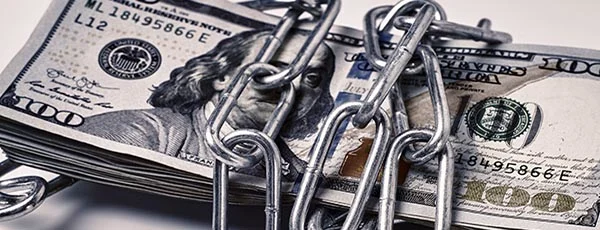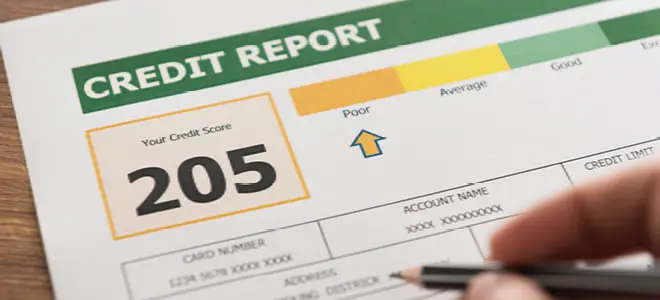Pros and Cons of Applying for a Personal Loan During COVID-19

UpdatedJun 15, 2025
- Even during a pandemic, personal loans are popular. Check out the pros and cons.
- One reason to take a personal loan during the COVID crisis is to avoid using retirement money.
- One con of taking a personal loan during uncertain times is high-interest rates.
Table of Contents
- Pro: You avoid pulling money out of your retirement savings
- Pro: The money can be used for anything
- Pro: You don’t need to put up collateral
- Con: It might be harder to get approved during COVID-19
- Con: Interest rates and fees can be very high
- Con: Puts you further into debt
- What to do if you are considering a personal loan
- What if a personal loan doesn’t cut it?
The pandemic has caused many Americans to search for financial relief in new ways. Personal loans have surged in popularity as it seems more people are willing to take on this type of debt. According to a study by Experian, personal loan balances of $30,000 or more have increased by 15% compared to five years ago. But Experian also reports that the average monthly payment for a personal loan is $360, which can be steep for anyone struggling to make other payments.
Does taking out a personal loan make sense during COVID-19? With more Americans filing for unemployment and the future of our economy looking murky at best, borrowing money to keep yourself afloat could be a valid option.
But before you start applying for loans, let’s take a look at the pros and cons of applying for a personal loan during COVID-19. It may be the answer, or you might find better relief in other options.
Pro: You avoid pulling money out of your retirement savings
A personal loan could help you avoid pulling money out of retirement savings, such as a 401(k). Any withdrawals from a 401(k) are usually taxable and if you withdraw now, you’ll have to re-contribute to it overtime. Under the CARES Act, you can withdraw penalty-free up to $100,000 from your retirement account, but you are still on the hook to repay what you borrowed. You could spend several years trying to make up the difference which means you could lose out on potential bigger gains in the long-run.
A personal loan could help you protect your nest egg and give you a chance to continue earning money in your retirement accounts. This makes even more sense if the interest rate on a personal loan is less than the rate of return on your investments. For instance, if the interest rate on a personal loan is 3% but you have a rate of return of 8% on your investments, you’d still be up 5% overall.
Pro: The money can be used for anything
Once you are approved for a personal loan, the money can be used for anything. Use it to cover your rent check, food for your family, or medical bills. Other loan products, like student loans or a car loan, can only be used for those specific expenses.
The pandemic presents an unusual situation in which to consider a personal loan. Before the current downturn, most people considered personal loans for other reasons. For example, a Mintel study on loans found that nearly half of respondents planned to use a personal loan to consolidate debt. Others said they would use a personal loan for home improvement projects, a wedding, or travel. With so much uncertainty now, you may opt to use the money for something less exciting, like covering basic needs.
Pro: You don’t need to put up collateral
You might see the terms “unsecured loan” and “secured loan” in your personal loan research. The biggest difference between the two is that secured loans typically allow you to borrow money with collateral and unsecured loans do not have collateral tied to it. An unsecured personal loan means you don’t run the risk of losing any assets used as collateral (like a car or house) if you don’t make your payments on time. However, as a result, unsecured loans typically have higher interest rates than secured loans.
Con: It might be harder to get approved during COVID-19
Before you can borrow money through a personal loan, you need to demonstrate your ability to pay back the loan. This can be hard to prove if you are currently unemployed or furloughed. Your debt-to-income ratio also needs to be in good shape, so if you have taken on more debt recently and lost your job or your income has dramatically decreased, it can make getting approved for a loan more challenging.
Other factors like your credit score or repayment history are also taken into consideration. Lenders might be hesitant to loan you money if you had trouble in the past. But the biggest thing a lender wants to see is your ability to repay the loan. With the economy in a recession, lenders are extra cautious and it might be harder to get approved for these types of financial products.
Con: Interest rates and fees can be very high
The national average interest rate on personal loans is 9.41% and often can be even higher. For example, Navy Federal Credit Union cites personal loan interest rates at up to 18%, with US Bank lending at more than 16%.
In addition to a high interest rate, there are the fees. Some banks charge a prepayment penalty fee if you decide to pay off your personal loan early. Other banks charge an origination fee, which is the cost associated with processing your loan.
All of this adds up and makes personal loans more expensive than you might realize at first. Interest rates and fees should be considered a part of the total cost of a personal loan. You could save yourself time and money by asking for forbearance on any current debt obligations, or looking into debt relief options instead.
Con: Puts you further into debt
It may be obvious, but it’s worth saying again; a personal loan adds to your existing debt. In a survey conducted by Freedom Debt Relief, nearly half of respondents said they feel poor or very poor about their financial security. If you agree, may not be the time to add to your debt (and your stress) load.
If you feel anxious about your debt situation as it is, it might help to lay everything out on paper first. What expenses take priority and which ones can take a backseat temporarily? List out your monthly income, debt payments, and expenses in one spot. A loan could help pay off some of those expenses and debt payments, but the price would be adding on the loan payment each month. Would it be worth it?
What to do if you are considering a personal loan
If you believe applying for a personal loan is truly a good option for you, finalize your research by taking these steps before you fill out any paperwork.
Exhaust all relief avenues first. Many financial institutions are offering payment deferrals, waived fees, or lower interest rates during COVID-19.
Review your income and expenses. Can you reprioritize your expenses or stretch your income further for a while longer?
Gather personal loan quotes. Don’t settle with the first offer you come across. Gather quotes from at least three sources.
Compare the quotes. Look up personal loan terms, interest rates, fees and minimum payment amount. Understand the true cost of the loan.
What if a personal loan doesn’t cut it?
If you are struggling with debt and a personal loan doesn’t seem like the right answer, we’re here to talk. Freedom Debt Relief can help you understand your options for dealing with your debt, including our debt settlement program. Our Certified Debt Consultants can help you find a solution that will put you on the path to a better financial future. Find out if you qualify.
Learn More
Are Debt Collectors Still Calling During Coronavirus? (Freedom Debt Relief)
How to Prepare for a Recession If You are Already Struggling (Freedom Debt Relief)
Personal Loans Can Help in a Crunch. But Read This Before You Apply (CNN)
How to Get Money During COVID-19 (Forbes)
Debt relief by the numbers
We looked at a sample of data from Freedom Debt Relief of people seeking credit card debt relief during May 2025. This data reveals the diversity of individuals seeking help and provides insights into some of their key characteristics.
Credit utilization and debt relief
How are people using their credit before seeking help? Credit utilization measures how much of a credit line is being used. For example, if you have a credit line of $10,000 and your balance is $3,000, that is a credit utilization of 30%. High credit utilization often signals financial stress. We have looked at people who are seeking debt relief and their credit utilization. (Low credit utilization is 30% or less, medium is between 31% and 50%, high is between 51% and 75%, very high is between 76% to 100%, and over-utilized over 100%). In May 2025, people seeking debt relief had an average of 74% credit utilization.
Here are some interesting numbers:
| Credit utilization bucket | Percent of debt relief seekers |
|---|---|
| Over utilized | 30% |
| Very high | 32% |
| High | 19% |
| Medium | 10% |
| Low | 9% |
The statistics refer to people who had a credit card balance greater than $0.
You don't have to have high credit utilization to look for a debt relief solution. There are a number of solutions for people, whether they have maxed out their credit cards or still have a significant part available.
Student loan debt – average debt by selected states.
According to the 2023 Federal Reserve Survey of Consumer Finances (SCF) the average student debt for those with a balance was $46,980. The percentage of families with student debt was 22%. (Note: It used 2022 data).
Student loan debt among those seeking debt relief is prevalent. In May 2025, 27% of the debt relief seekers had student debt. The average student debt balance (for those with student debt) was $48,703.
Here is a quick look at the top five states by average student debt balance.
| State | Percent with student loans | Average Balance for those with student loans | Average monthly payment |
|---|---|---|---|
| District of Columbia | 34 | $71,987 | $203 |
| Georgia | 29 | $59,907 | $183 |
| Mississippi | 28 | $55,347 | $145 |
| Alaska | 22 | $54,555 | $104 |
| Maryland | 31 | $54,495 | $142 |
The statistics are based on all debt relief seekers with a student loan balance over $0.
Student debt is an important part of many households' financial picture. When you examine your finances, consider your total debt and your monthly payments.
Support for a Brighter Future
No matter your age, FICO score, or debt level, seeking debt relief can provide the support you need. Take control of your financial future by taking the first step today.
Show source
Author Information

Written by
Justine Nelson
Justine Nelson is the founder of Debt Free Millennials, an online community to help millennials eliminate debt and live a debt free lifestyle. As a freelance writer and YouTuber, Justine enjoys creating upbeat and educational personal finance content. This Midwest millennial paid off $35k in student loan debt and now resides in San Diego with her husband.


